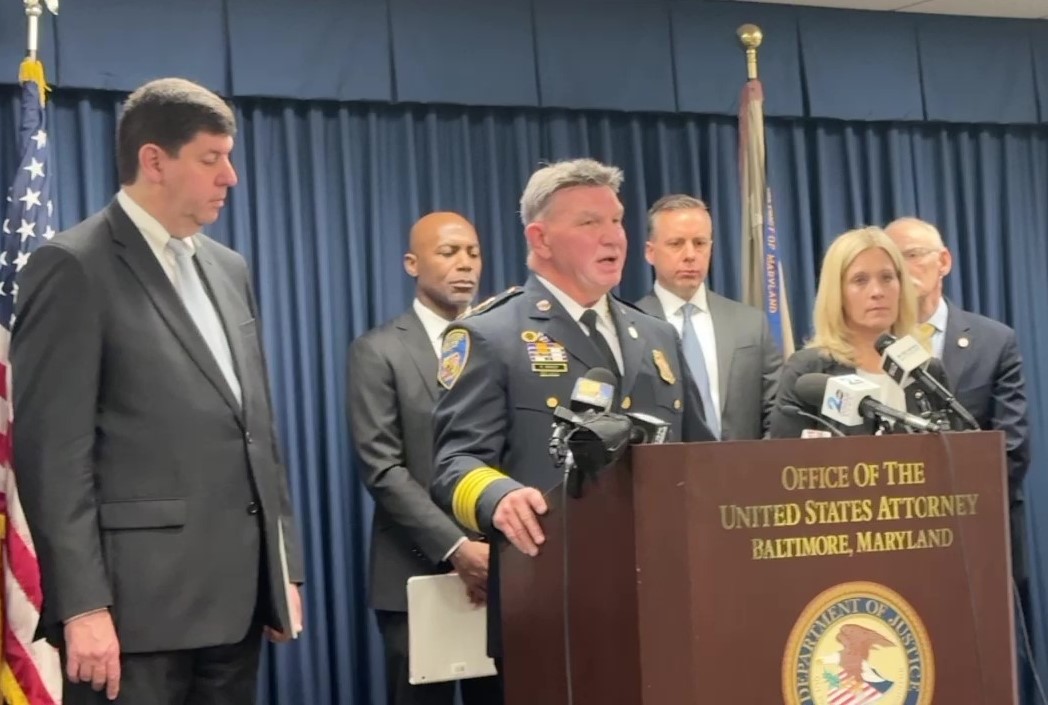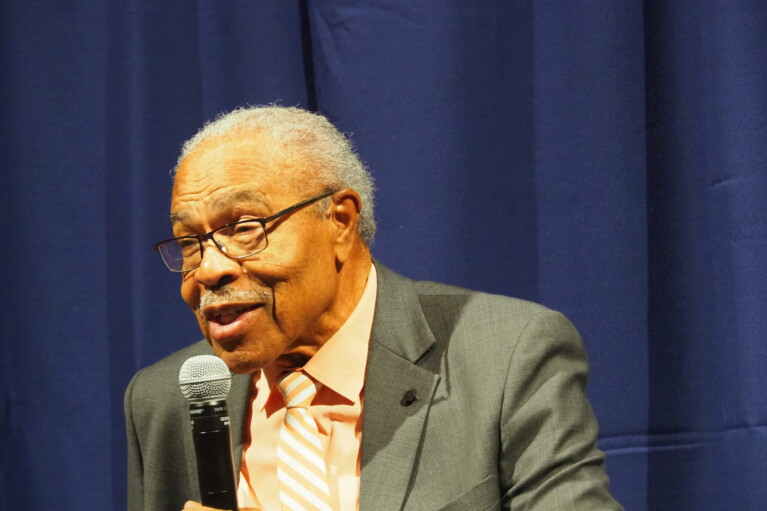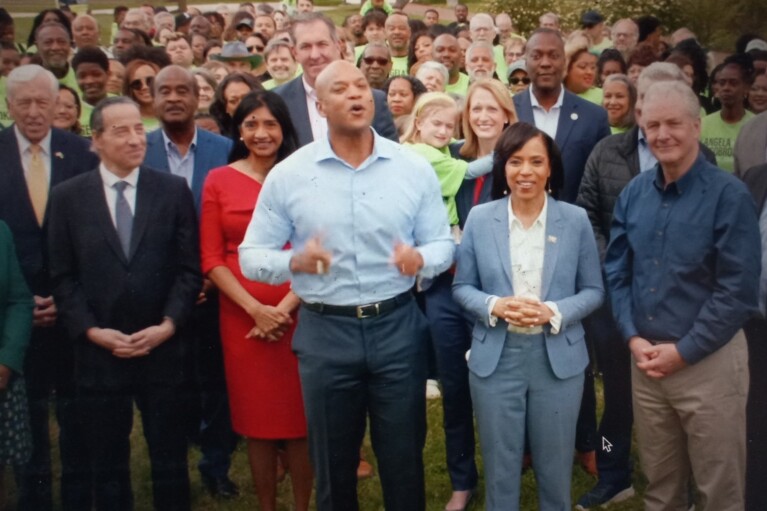Audit finds excessive overtime payments in Baltimore Police Department

A state audit released Monday shows the Baltimore Police Department allowed excessive overtime payments to accrue, including 100 officers who logged more than 1,000 hours of overtime during fiscal year 2022 at a cost of nearly $7.7 million.
According to the document from the Office of Legislative Audits, seven officers each received more than $100,000 in overtime that same year.
The review covers Dec. 20, 2020, to June 30, 2022.
“Our audit disclosed that supervisory personnel at all levels, including front-line supervisors, command, and administrative management, did not exercise the necessary oversight and disciplinary action to effectively monitor overtime and ensure compliance with [police department] policies and procedures,” wrote Legislative Auditor Gregory A. Hook. “We noted numerous deficiencies relating to the use, payment, and monitoring of overtime. Furthermore, these conditions occurred for extended periods without being identified and resolved and contributed to excessive overtime being paid to certain officers.”
It’s the last of a six-year audit cycle of the Baltimore Police Department (BDP), which has received criticism for its overtime payments dating back to at least 2018. The audit released Monday noted that the city’s Department of Audits from that year highlighted a “lack of command accountability and resistance to change, barriers to effective monitoring and supervision and BPDs reliance on manual systems/lack of technology.”
However, this most recent audit didn’t specifically provide a status update from the 2018 audit.
The audit doesn’t name the officers, but it notes the 100 officers who logged more than 1,000 hours worked in a variety of units, including the auto theft task force, patrol, homicide and traffic and special events.
The highest amount of overtime paid was $151,373 for a sergeant, who averaged 37.3 hours of overtime per week, in the SWAT (Special Weapons and Tactics) unit.
Police Commissioner Richard Worley Jr., who was confirmed to that position by City Council in October, noted in a Jan. 10 letter within the document that he acknowledged the audit’s findings.
Worley wrote that the department and the city government implemented a new human resources and payroll system called “Workday” at the beginning of the audit period in December 2020.
“The implementation required a comprehensive overhaul of BPD’s administrative policies, practices, and procedures relating to time entry, overtime, and leave,” he wrote. “Timekeeping activities went from poorly managed paper-based processes to digital time entry with employee self-service tools, requiring hourly non-exempt employees to enter time in a pay to punch system.”
The commissioner continued: “The agency continues to ensure our employees are compliant with all payroll policies and procedures and has developed a plan to implement the audit recommendations.”
The department in fiscal year 2022 had 3,195 employees — 2,638 sworn officers and 557 civilian personnel — with expenditures at nearly $530 million, which included $425 million in payroll-related expenses, including overtime.
According to the audit, overtime payments decreased from nearly $54 million in fiscal 2018 to about $46 million in fiscal year 2022.
During that same time frame, vacancies at the agency increased from 204 to 476.
Findings, recommendations
The audit concludes that the department’s overtime payments were “directly attributable to position shortages and vacancies.”
According to the audit, about 268 individuals exceeded the 32-hour per week limit for voluntary overtime a total of 693 times. Some of that includes administrative work, “listening to jail calls” and special investigations.
The highest percentage of voluntary work was 17%, or nearly $10 million, that dealt with staff shortages — defined in part, as an activity for officers who “freely work shifts where there are not enough officers for adequate and efficient post coverage” that includes “training outside normal hours.”
But the audit still noted supervisory personnel “at all levels” did not exercise the necessary oversight and disciplinary action to monitor overtime and ensure compliance with department’s payroll processes and overtime policy.
The audit presented several recommendations for improvements to the system, including:
- Establishing procedures for command personnel to effectively analyze overtime data at all levels to ensure that front-line supervisors are ensuring compliance with overtime requirements.
- Taking disciplinary action against the employees and supervisors associated with any overtime earned in violation of BPD’s policies, as appropriate.
- Maintaining a complete and accurate record of officers and entities approved for external secondary employment.
Although Worley agreed with the majority of the recommendations and said he will implement and update certain policies such as re-training supervisors on the payroll system, in his written response he partially disagrees with a recommendation on identifying uncategorized overtime, such as nearly $17 million highlighted in the audit.
Worley noted the department will implement a quarterly audit plan to flag applicable time entries.
“…BPD does not feel that auditing the data would be an efficient use of resources. As to audit the data would be a[n] enormous task involving millions of transactions and thousands of employees,” according to his letter. “BPD does not have the resources to support this historical lookback and would like to dedicate resources to ensuring compliance going forward. In addition, the timeframe for taking correcting action for misconduct has ended.”




 Creative Commons Attribution
Creative Commons Attribution